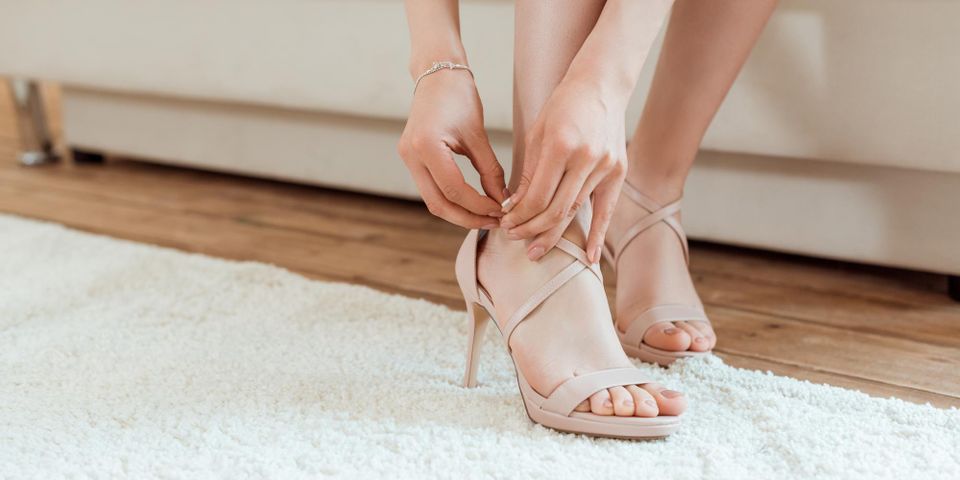
If you’ve ever dealt with foot pain after a long day in high heels, you might be wearing them too often. These shoes draw your feet out of their natural positions and can create some serious problems over time. You can still wear them for special occasions or on a night out, but you should take the proper steps to avoid complications.
Common Issues
When you wear high heels, your body weight is pushed onto the balls of your feet rather than the heels. The foot isn’t designed to support the body in this position for long periods day after day, and many people develop chronic foot pain after constant wear. The pressure may also lead to blisters, swelling, and ankle injuries.
Some people develop muscle and ligament injuries because the bones and muscles are held out of their natural position for so long. If the heels are too tight, the toes can become squished, and the compression could lead to further blistering and ingrown nails. Because of the angle of your body, you’re also more likely to experience more significant injuries if you fall.
How to Prevent Them
 Try to limit how often you wear high heels. If you want to wear them at work or to a special event, wear low heels for no longer than four hours. Reduce that limit by an hour as the heels get taller; those over 3.5 inches should be worn no longer than an hour at a time.
Try to limit how often you wear high heels. If you want to wear them at work or to a special event, wear low heels for no longer than four hours. Reduce that limit by an hour as the heels get taller; those over 3.5 inches should be worn no longer than an hour at a time.
You should also choose your heels carefully. If they’re too tight, purchase a new pair. They should have thick cushioning and, ideally, be no higher than 1.5 inches. You can reduce the amount of time you wear them by donning sneakers to the office or event and then putting them on for photos or presentations.
After, massage your feet and stretch. Sit with your legs extended and reach toward your toes. At the same time, press your toes back toward your body. You should feel a deep stretch running through your foot and up your legs.
If foot pain is a constant problem, contact Aquilar Foot Care Clinic. This foot care clinic in Russellville, AR, is led by podiatrist Danny J. Aquilar and treats a variety of conditions. Whether you’ve suffered an injury that requires foot surgery or need bunion relief, call (479) 890-3668 to schedule a consultation. Learn more about this practice on the website.
About the Business
Have a question? Ask the experts!
Send your question

